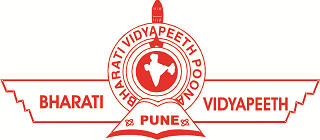Introduction
All educational institution is governed by Research productivity, IPR, Incubation and development. Research generates and distributes new information and foster innovation, which motivates faculty members and students to improve their learning and teaching skills. The policy aims to lay down guidelines and procedures for promotion of research culture among faculty members and students and to adhere to the research quality assurance framework and the research ethics.
Composition of Research & Development Cell (R&D Cell)
The Research Cell shall have the following composition
– R&D Committee comprising of Dean R&D , Executive Member and department coordinators as members of R&D Cell.
Aims and Objectives
- Development of an ecosystem that fosters and encourages, faculty and students for both thrust areas and multidisciplinary research.
- Promote research through research and consultancy projects, intellectual capital and Innovation.
- Build links with industry and Industries and with research organizations to broaden the spectrum of research alternatives.
- Encourage and incentivize faculty members and students for publication of their high-quality research findings and patent filing.
- Administer research framework ensuring the research quality and ethics.
Research Policy Implementation Mechanism
The above aims and objectives shall be implemented by R &D cell working along with college management.
- Conduct R&D Advisory board meeting annually along with external members to evaluate the research activities and schedule an action plan for the subsequent year.
- Encourage faculty to do PhD at IITs and various other institute of repute.
- Provide research journal assistance, other research resources as requested by the faculty.
- Organize workshops/ training programme to execute research work/projects on campus.
- Identify funding agencies and experts from well-known premiere institutions to collaborate in research and consultancy.
- Uphold and encourage research culture which includes publishing quality research papers and attending technical conferences, FDPs, STTPs etc.
- Acknowledgement of the institute in technical/scientific papers published by Faculty Members.
- Organize training certifications for faculty members in various industry level technologies.
- Maintain biannually Journal of Multidisciplinary Engineering Technologies (JMDET) which caters to research problem involving multiple disciplines.
- Formation of departmental R&D research groups focusing on thrust areas.
- Augment laboratory equipments and maintain book banks for additional reference for students.
- Research at UG level is promoted by Mini, Minor and Major Projects undertaken under the guidance of faculty members.
- Assist faculty and student with financial assistance for multidisciplinary research.
- Awarding best researchers annually to incentivize and promote quality research publications.
- Subscription of Turnitin Plagiarism Checker to prevent infringement and plagiarism in research ethics.
Research Projects and Incubation
- Faculty members are encouraged to submit research proposals for Sponsored Projects to funding institutions such as the AICTE, UGC, DST, SERB etc. For the same Consent from Institute’s head is mandatory.
- Any faculty can apply as Co-PI in non-parent organization as long as he/she reflects the name of the college and there is no financial commitment involved.
- The Institute allows employees to work on research, non-research, and/or private consulting projects as long as they do not interfere with their usual responsibilities. Consultancies are only permitted with the permission of Principal.
- For Consultancy Projects, after deducting actual expenses, balance is distributed between college and faculty (or group of faculties) in the ratio of 60:40. However, the entire legal costs if any has to be borne by faculty. In case of any adverse outcome, faculty stands responsible.
- Intellectual Property: The institute urges faculty members and students to make efforts towards identifying potential intellectual property (patent, copyright etc.) and forward it to IPR cell of the institute for evaluation and patent filing. The institute bears expenditure for patent filing application.
- Incubation: Institute provides ecosystem conducive to the development of potential service or product which can be shaped as a startup and further hands it over to the incubation center of the college for further manifestation.
Code of Ethics for Research
Academic Integrity
Honesty in all scientific communications is valued at the Institute, including data, results, techniques and procedures, and publication status. The institute does not tolerate data falsification, fabrication, or misrepresentation. It is considered misconduct on the part of the researcher to deceive colleagues, funding agencies, or the general public.
Intellectual Property Is Respected
Another crucial aspect is to respect patents, copyrights, and other intellectual property rights. Unpublished data, methods, or results must not be used without authorization. It is necessary to give credit where credit is due. Plagiarism must be avoided at all costs, and research contributions must be properly acknowledged/credited.
Confidentiality
Protecting sensitive information, such as articles giants submitted for publication, personal records, trade or military secrets, and patient records, is ethical on the part of any researcher.
Legality
Government policies, pertinent legislation, and institutional rules and regulations must all be known and followed by a researcher.
Plagiarism Prevention Rules
The Turnitin Plagiarism Software Tool must be used to check all project/seminar reports, dissertations/theses, research papers, case studies, and other similar publications. The concerned student must provide a plagiarism report prepared by a Software Tool to the department in the event of Project/Seminar Reports, Dissertations/Thesis.

